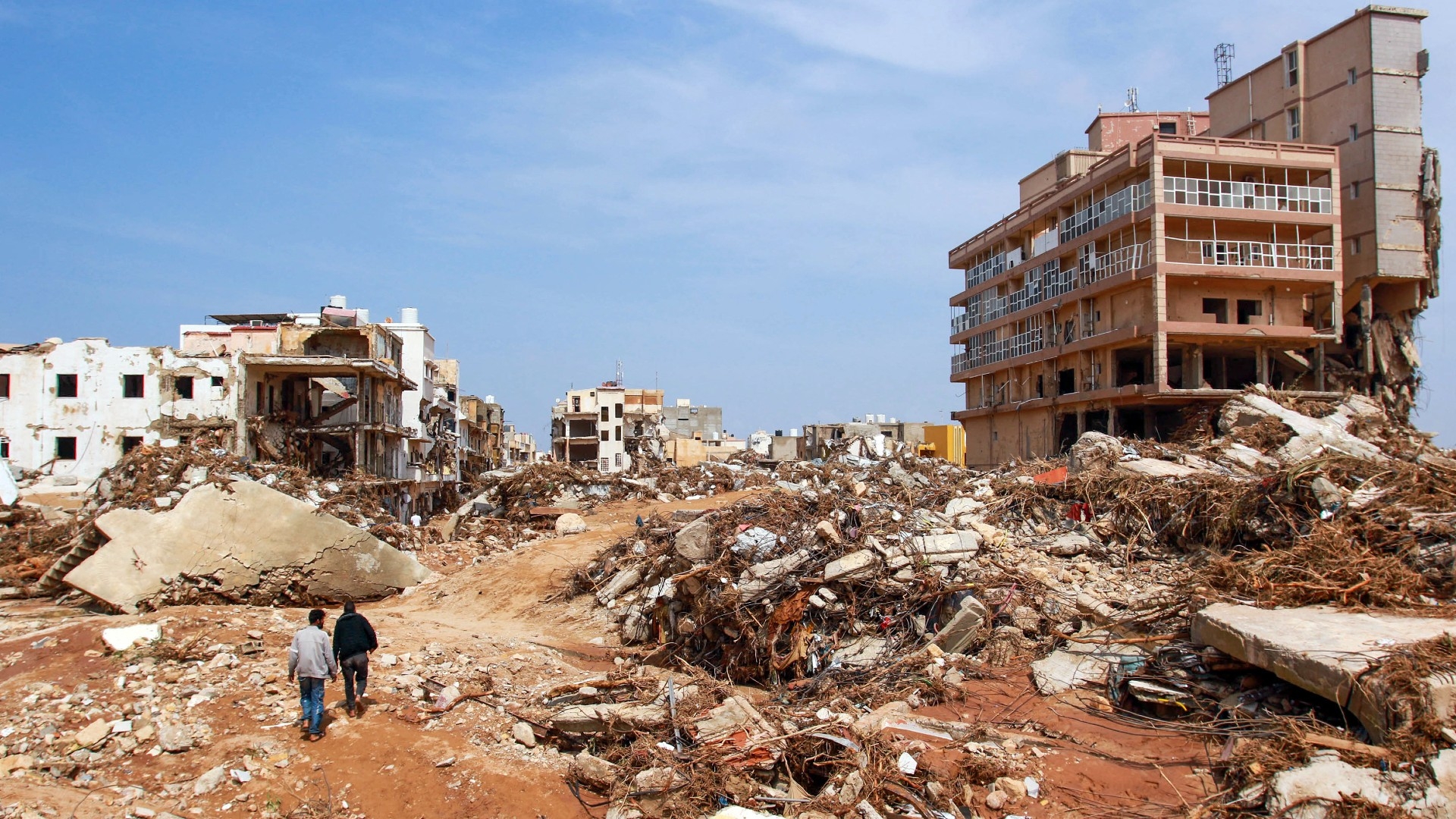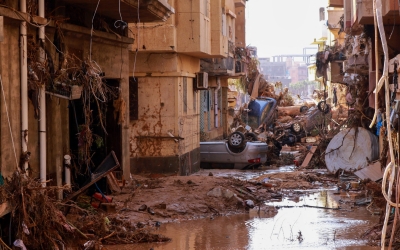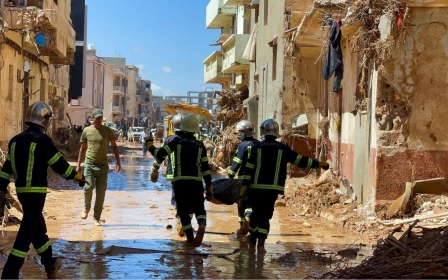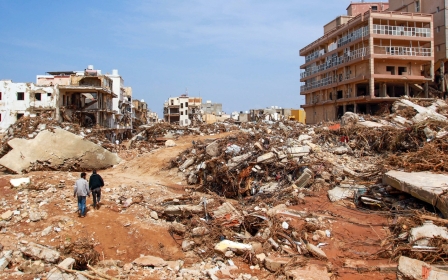Most deaths from Libya floods were avoidable, says UN as 20,000 feared killed

Most of the deaths from floods in Libya could have been avoided if early warning and emergency management systems were in working order, the United Nations said on Thursday.
At least 5,200 people died in Derna after two dams collapsed on Monday when a tropical storm unleashed floods down the Wadi Derna, a river running from eastern Libya's Green Mountains through the city and into the sea.
Entire neighbourhoods were swept away and around 10,000 people are still missing.
Abdulmenam al-Ghaithi, Derna's mayor, told Saudi broadcaster Al-Arabiya on Wednesday that the death toll could reach between 18,000 and 20,000, based on how many neighbourhoods were destroyed.
However, if early warnings had functioned properly, "the emergency management authorities would have been able to carry out evacuation of the people and we could have avoided most of the human casualties," the UN's World Meteorological Organisation (WMO) Secretary-General Petteri Taalas told reporters in Geneva on Thursday.
New MEE newsletter: Jerusalem Dispatch
Sign up to get the latest insights and analysis on Israel-Palestine, alongside Turkey Unpacked and other MEE newsletters
While Libya's national meteorological centre did issue warnings for extreme weather 72 hours before the storm hit, WMO's regional office said it wasn't clear "whether [the warnings] were effectively disseminated".
"Disaster management has indeed broken down in Libya," it added.
Dam collapse questioned
Libya has been in a state of unrest and instability since 2011 when a Nato-backed uprising toppled longtime ruler Muammar Gaddafi, leaving the country deeply fractured and lacking a strong central government.
The country of seven million is divided between those ruled by an internationally recognised government based in the capital, Tripoli, and a separate administration governing the disaster-hit east.
On Thursday, Mohamed al-Menfi, head of the three-member council that acts as the presidency of the Tripoli-based government, said the council would ask Libya's attorney general to investigate the disaster.
He said that those responsible for the failure of the two dams in Derna should be held to account.
A report by an academic at Omar Al-Mukhtar University in Libya published last year predicted that the Derna area had a high potential for flood risk, and its dams required frequent maintenance.
"Dams in Libya are in weak condition and maintenance is not a priority," Malak Altaeb, an independent consultant and researcher on environmental policy told Middle East Eye on Wednesday.
"If the dams were better maintained, it would have effectively reduced the devastation."
On Tuesday, an official told local media that another dam in the eastern region, between Derna and Benghazi, was filled with water and on the brink of collapse.
Altaeb said Libya lacked the robust disaster preparedness, early warning systems, evacuation plans and well-maintained infrastructure needed to "mitigate the impact of storms and protect lives".
Middle East Eye delivers independent and unrivalled coverage and analysis of the Middle East, North Africa and beyond. To learn more about republishing this content and the associated fees, please fill out this form. More about MEE can be found here.





